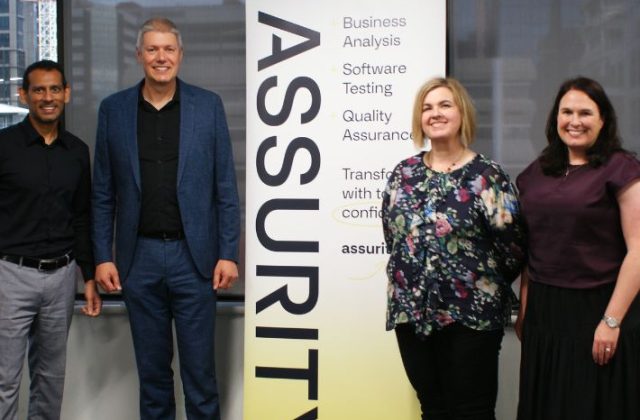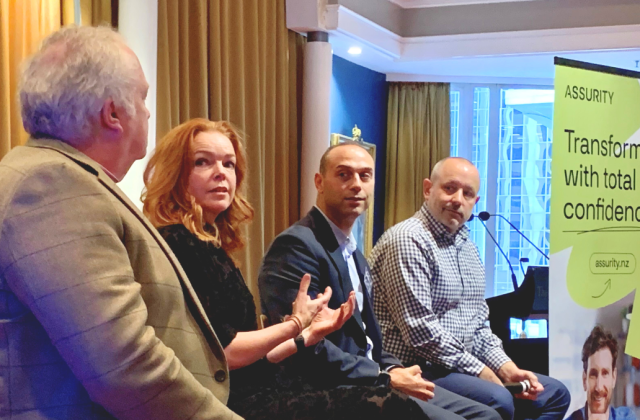Date: 18 July 2021
“You can’t build a long-term future on short-term thinking” Billy Knox.
I come from years working at Gartner. For those who aren’t familiar with Gartner, it’s a market research firm rooted in technology… predicting, forecasting where the market will go so its clients can make the best technology investments for their business. Future thinking, predicting, forecasting is a way of operating, working, thinking. In my time at Gartner, I’ve found that you are either naturally inclined to think that way or not.
Maybe it was years of clients asking me “What’s next?” that it became a natural way of operating for me in my day-to-day work and life. I’m constantly anticipating possible futures, I play them out in my head and predict possible scenarios. I now find that I do it in all aspects of my life – good or bad.
In my time as a Managing Vice President at Gartner, I did a lot of interviewing and spoke to a lot of C-Suite executives. What I found is Future Thinking doesn’t come naturally to most people. Instead, they focus on day-to-day work and life, getting caught up on what needs to be done today, tomorrow or this week. The focus is to get tasks, initiatives done… tick the box as completed. And although they are great to ensure things get done, it has left little room for future thinking.
Prioritise mindspace
Are the shortcomings a result of inability or prioritisation? It depends. For many C-suite executives, it’s a prioritisation issue… not just in calendaring but in mindspace. For others, they simply are not that way inclined to read or think about the future. In many of my discussions, individuals have discussed the desire to spend more time thinking about ‘what’s next’. So where do you start? How do you prioritise the mindspace so that calendar time is productive in progressing your thoughts?
The first place to start is to read ‘Future of…’ articles, reports and listen to podcasts, attend briefings or conferences. To think about the future, it’s good to feed the thinking by knowing what others are saying about your industry, customers and competitors. Where is it going, what is driving it, what are the obstacles and who are the up-and-coming competitors that you might not have thought about. This helps to get everyday thinking to a new macro, global level.
Apply, filter and research
Simply knowing the ‘future of…’ doesn’t bring the level of future thinking required for your role. You have to apply what you learned to your situation, your company, your environment, your customers. This is where you start to filter what you have learned and identify what is interesting and relevant to you. But there’s a kind of ‘reader beware’ warning on this. You could get yourself lost and never be able to find your way back out with all the information available today. There is no shortage of knowledge experts so finding a few good sources is critical. Ask your peers, ask trusted future thinkers their sources of information. This might all sound somewhat obvious, but sometimes the most obvious can get overlooked and then people struggle to know where to start.
After you have the necessary information, then you can do some Future Thinking. Many people jump right into scheduling a team ‘brain-storming’ effort after some initial information has been gathered to start discussing what the future holds. But this can often fall flat or worse, take several meetings to get anything meaningful from. Rather, you need to stimulate the conversation with some initial thinking, give the team something to work with rather a blank piece of paper. You need to direct their thinking. And this is the hard part… so how do you start your own Future Thinking after you have the necessary information?
Here’s some things to consider:
- The best thinking doesn’t often happen behind the desk or a device. Rather it happens when you are doing something different such as walking the dog, working out or cooking dinner. It’s when you (may) have time to start to think beyond the information you gathered
- Future Thinking is at the intersection of trends in the industry, knowledge of your company and insights from your customers
- There is no single Future… rather scenarios that are based on a few assumptions coming true. Team discussions can revolve around these scenarios and the likelihood of one versus others
- Future Thinking needs to become part of your every day, every week… not a task you block time out for. The best Future Thinkers, in my opinion, are always future thinking, combing through news feeds, podcasts, attending conferences to get insights and then extending it, challenging it, discussing it
- True Future Thinkers spend more time talking to peers in the industry than they do talking to people inside the company. Aim for 60% of your calendar being booked with vendors, peers, industry leaders that are adjacent to your business
- And finally, ask questions, lots of questions. I find the most insightful leaders are those that don’t have all the answers or are used to providing answers. Rather, they are the ones who ask the most questions and listen to the responses
Future thinking needs to be part of your way of operating, not a task that you set aside once or twice a year. Read, ask questions, listen and then Future Think.











